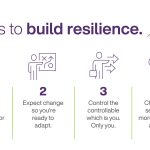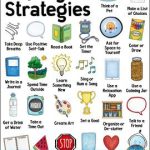
Weight loss is a common goal for many individuals, but achieving it safely is crucial to ensure long-term success and maintain overall health. Crash diets or extreme exercise regimes can be tempting, but they often lead to short-term results and can be detrimental to your well-being. This article will guide you on how to achieve your weight loss goals safely, focusing on sustainable lifestyle changes and making healthy choices.
Set Realistic Goals
When it comes to weight loss, it is essential to set realistic goals. Trying to lose a substantial amount of weight rapidly can be harmful to your body and increase the risk of regaining the lost weight. Instead, aim for a gradual but consistent weight loss of 1-2 pounds per week. This approach is more sustainable in the long run and allows your body to adjust to the changes.
Follow a Balanced Diet
The foundation of safe weight loss lies in following a balanced diet. Include a variety of fruits, vegetables, whole grains, lean proteins, and healthy fats in your meals. Avoid fad diets that eliminate entire food groups or severely restrict calorie intake, as they can deprive your body of essential nutrients. Instead, opt for portion control, and focus on creating a calorie deficit by consuming fewer calories than you burn.
Portion Control
Practice portion control in your meals by using smaller plates and bowls, which can help you feel satisfied with smaller amounts of food. Pay attention to your body’s hunger and fullness cues, and eat slowly to give your brain time to register satiety. Consider seeking guidance from a registered dietitian who can create a personalized meal plan tailored to your needs and goals.
Hydration
Staying hydrated is crucial for weight loss and overall health. Opt for water as your primary beverage, as it is free of calories and aids in digestion. Limit sugary drinks and alcohol, as they contribute empty calories and can hinder your progress. Drinking water before meals can also help reduce appetite, promoting a feeling of fullness and preventing overeating.
Regular Exercise
Pairing a balanced diet with regular exercise is integral for achieving weight loss safely. Engage in a mix of cardiovascular workouts, strength training, and flexibility exercises. Cardiovascular activities like brisk walking, jogging, or cycling help burn calories and improve heart health. Strength training exercises such as lifting weights or using resistance bands increase muscle mass, which boosts metabolism and aids in weight loss.
Consult a Professional
If you are new to exercise or have any underlying health conditions, it is advisable to consult a healthcare professional before starting a new workout routine. They can provide guidance on appropriate exercises and help you establish realistic goals based on your fitness level. Gradually increase the intensity and duration of your workouts, allowing your body time to adapt and minimize the risk of injuries.
Find Activities You Enjoy
Engaging in physical activities that you enjoy increases the likelihood of sticking to your routine. It can be dancing, swimming, hiking, or playing a sport. By turning exercise into an enjoyable part of your lifestyle, it becomes easier to maintain in the long term. Consider finding an exercise buddy or joining group classes to add a social aspect to your workouts, making it more enjoyable and motivating.
Practice Mindful Eating
Mindful eating involves paying full attention to the experience of eating, focusing on physical hunger and satiety cues, and savoring each bite. This approach can help you develop a healthier relationship with food and prevent overeating. Avoid distractions like watching TV or using electronic devices while eating, as they can lead to mindless consumption and overindulgence.
Reduce Emotional Eating
Many individuals turn to food for comfort or as a coping mechanism for emotional stress. Recognize your emotional triggers and find alternative ways to deal with these feelings, such as practicing relaxation techniques, seeking support from loved ones, or engaging in hobbies that provide a sense of fulfillment. If emotional eating becomes a persistent issue, consider seeking help from a therapist or counselor who specializes in this area.
Monitor Progress and Seek Support
Tracking your progress is essential for staying motivated and making adjustments if necessary. Keep a food diary to record your meals, snacks, and beverages, along with your exercise routine. This allows you to identify patterns, make healthier choices, and celebrate your achievements. Additionally, seek support from friends, family, or online communities who share similar weight loss goals. Having a support network can enhance accountability and provide encouragement along the journey.
Conclusion
Achieving your weight loss goals safely is a journey that requires patience, determination, and a commitment to sustainable lifestyle changes. By setting realistic goals, following a balanced diet, incorporating regular exercise, practicing mindful eating, and seeking support, you can make steady progress towards a healthier weight while safeguarding your overall well-being. Remember that maintaining a healthy weight is a lifelong endeavor, and the focus should be on creating healthier habits rather than quick fixes.





